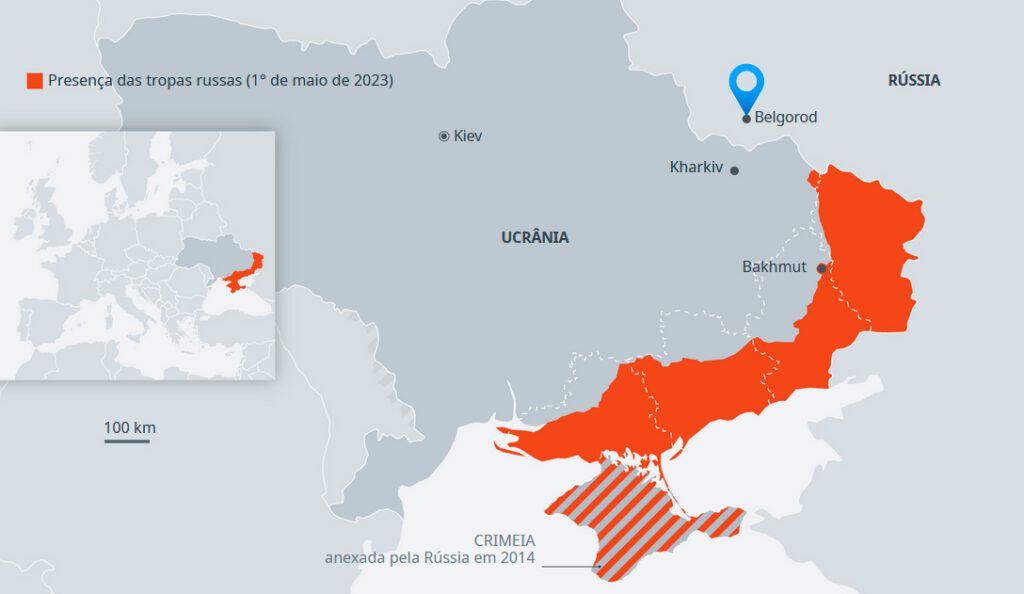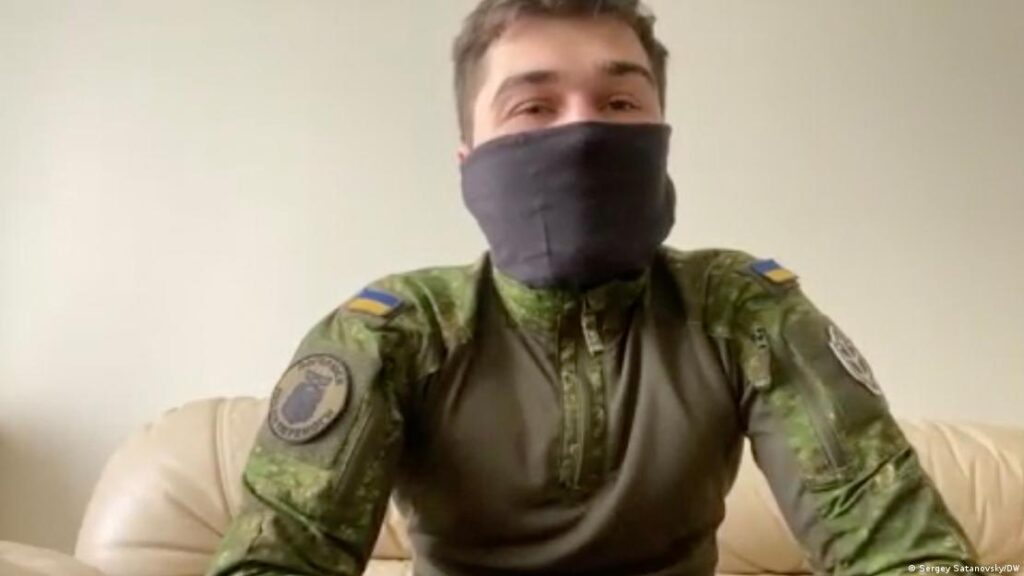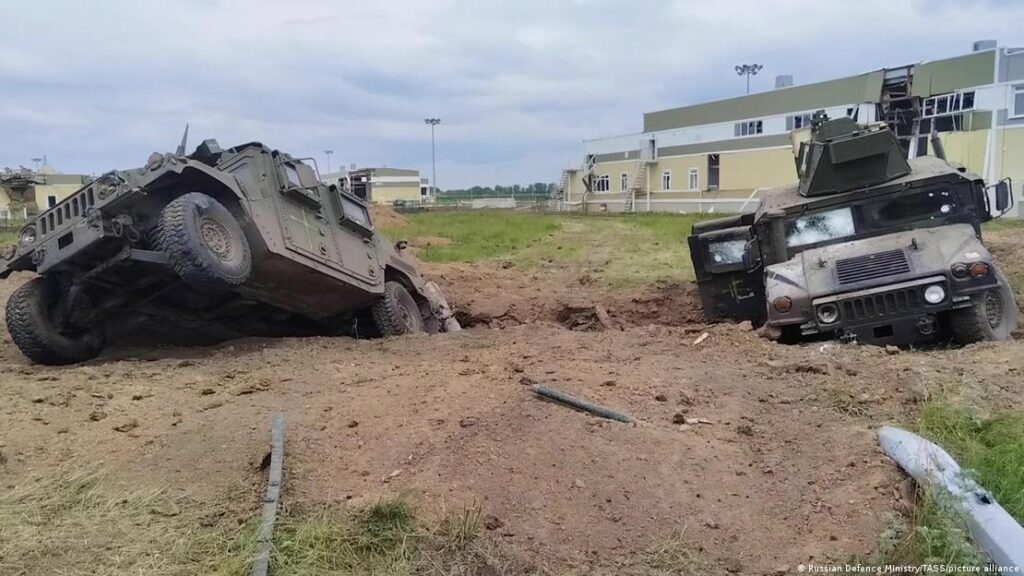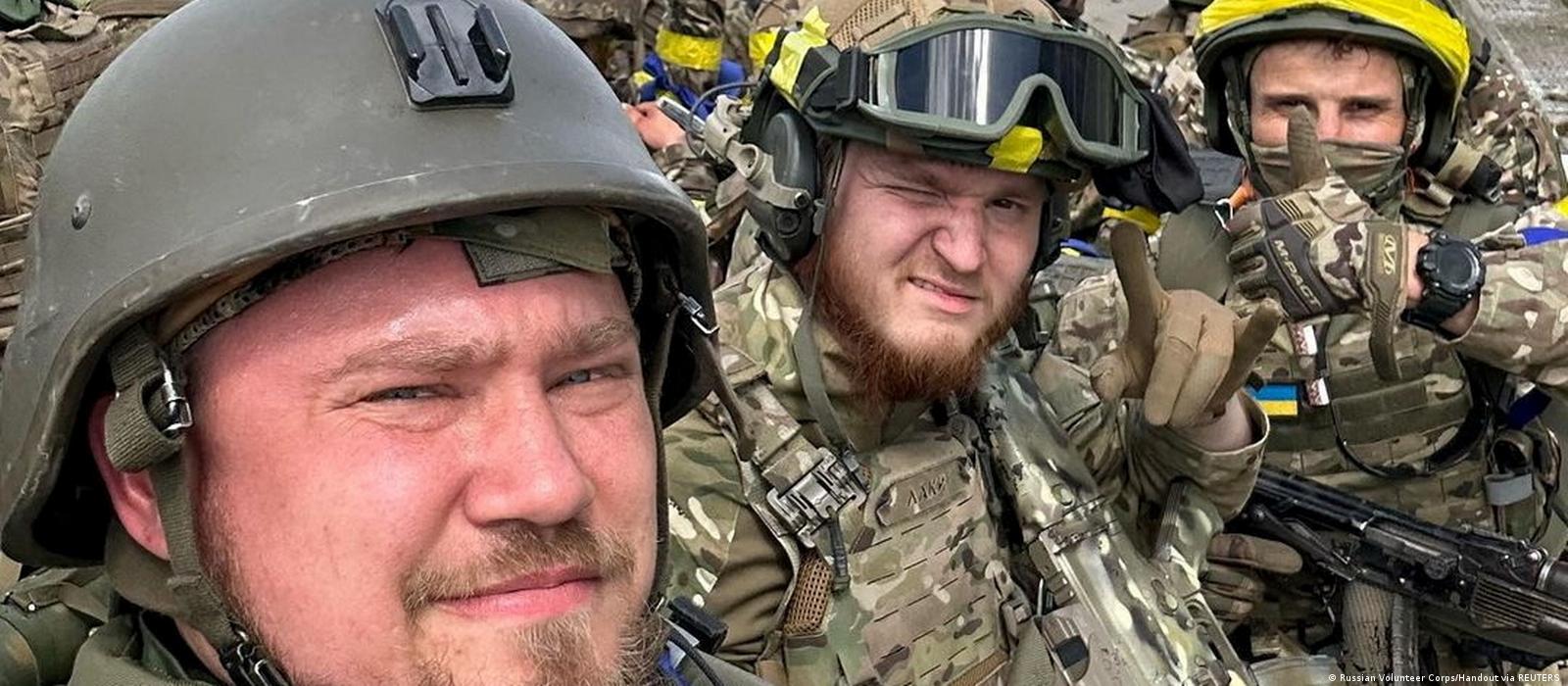How were the troops of anti-Kremlin Russian soldiers who attacked Belgorod on the Ukrainian border formed and what ideology do they represent?
“Dreams come true! I am now in the Legion of Freedom for Russia,” said former deputy head of Russia’s state-owned Gazprombank, Igor Volobuyev. The legion’s Telegram channel carries details of several Russian servicemen who defected to Ukraine and even revealed their names.
Not only Ukrainians, therefore, are fighting on Kiev’s side, but also citizens of Russia itself – both in the Legion of Freedom for Russia and the so-called Russian Volunteer Corps.
On Monday (5/22), fighters from these units attacked the Belgorod region of Russia. Andriy Yusov of the Ukrainian secret service spoke on the public broadcaster Suspilne about an “operation to liberate areas of the Belgorod region from the Putin regime.”

Russian-only units
The Legion of Freedom for Russia is known to have existed since at least early April 2022. It was supposed to be composed of captured Russian soldiers who had defected to the Ukrainian side, but also of volunteers with Russian passports.
“It’s about 500 men,” says Ilya Ponomariov, a former deputy in the Russian Duma who now lives in exile and represents the unit. In 2014, he was the only one who voted against the annexation of the Ukrainian peninsula of Crimea.
The other unit, the Russian Volunteer Corps, was formed in August last year. The unit’s membership is kept secret, but a fighter known by the codename “Cardinal,” whose military identity was shown to DW, says they perform duties of a military company.
A company consists of 30 to 150 men. The cofounder of the unit, businessman Denis Kapustin, who is well known in the Russian right-wing extremist environment and who uses the pseudonym Denis Nikitin, reported late last year that the Russian Volunteer Corps has been active with the Ukrainian Army since the second half of 2022.
“True nation”
On social media, the Russian Volunteer Corps claims that all of its members would hold right-wing conservative views. The “Cardinal” fighter, for example, sees the future Russia as a “true nation of Russians on the original Russian territories – taking into account the territorial integrity of Ukraine, Belarus and neighboring countries.” He emphasizes, “We want to build a state for Russians that wants to live in peace with all neighboring nations.”
The members of the Legion of Freedom for Russia, on the other hand, do not publicly express their political views. Ilya Ponomariov points out that there is no dominant ideology in the unit. He says that it would be the prototype of the future army of the Russian Federation and that the advantage is that the unit is neither on the left nor on the right and is neither liberal nor conservative. Its members would be united by the will to oppose aggression from Russia.

Dissolution or preservation of the federation?
The Russian Volunteer Corps belongs to the Civil Council, a new association of Russian emigrants founded in Warsaw. Anastasia Sergeyeva, responsible in the group for international issues, until recently headed the Polish foundation For a Free Russia.
She says that the Civil Council also includes activists from the republics that belong to the Russian Federation and that they are committed to their people’s right to self-determination. The Civil Council has posted video messages on YouTube for Chechens and Circassians, inviting them to fight for Ukraine and work for the independence of their republics. Sergeyeva is seeking private donations to fund the work of the Civil Council and the training of new fighters.
The Legion of Freedom’s representative for Russia, Ilya Ponomariov, told DW in late 2022 that he was in negotiations about a cooperation with representatives of different countries and media.
Unlike the Russian Volunteer Corps, which allows regions to secede from the Russian Federation, the legion says its goal is to “preserve a united and indivisible Russia within the borders of 1991,” adding that regions would have to be given far-reaching powers and their ethnic identity should be preserved. The legion also raises money to fund its work – in cryptocurrency.

Recruiting combatants
Before the Russian Volunteer Corps began its cooperation with the Civil Council, it only accepted Russians who were already abroad. The unit claims that many of them have been part of the Azov Volunteer Battalion since 2014, fighting alongside Ukraine in the fighting in Donbass. Currently, the Civil Council is a kind of recruitment center. According to Anastasia Sergeyeva, men are now also accepted directly from Russia. On the council’s website, potential volunteers can fill out a questionnaire on a Google form or write to an encrypted ProtonMail mailbox. “Further communication takes place through the secure systems we propose,” explains Sergeyeva, without going into details.
As Oleksiy Arestovych, a former advisor to the Ukrainian presidential cabinet, emphasizes, the Legion of Freedom for Russia initially recruited only Russian prisoners of war who changed their minds. However, according to him, the legion now also accepts men who are still in Russia.
